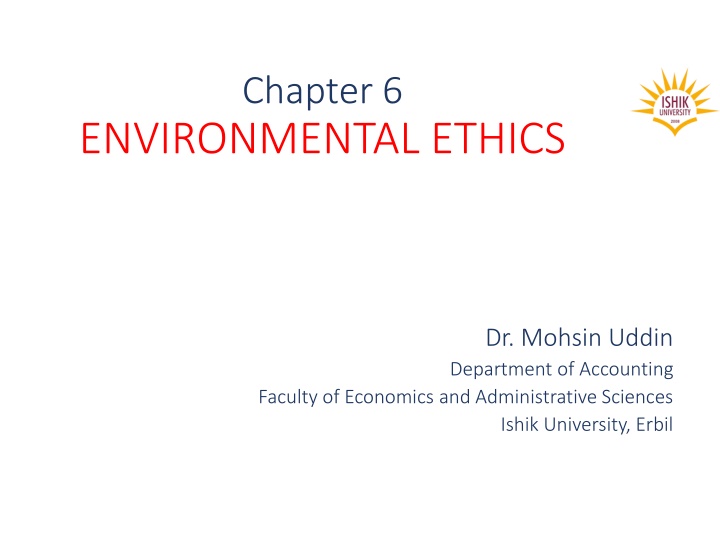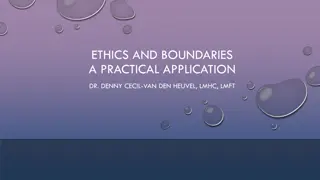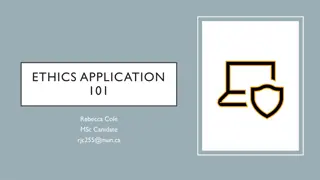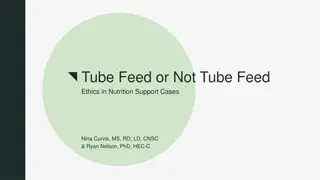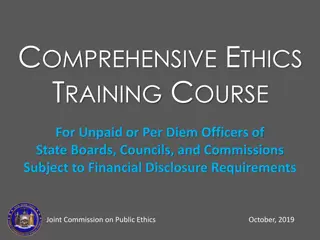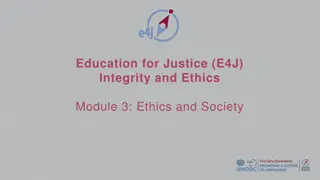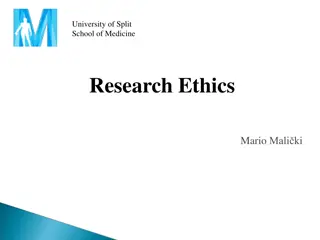ENVIRONMENTAL ETHICS
Department of Accounting at Ishik University, Erbil, presents Chapter 6 on Environmental Ethics by Dr. Mohsin Uddin. Explore the intersection of environmental issues and ethical considerations within the economics and administrative sciences discipline.
Download Presentation

Please find below an Image/Link to download the presentation.
The content on the website is provided AS IS for your information and personal use only. It may not be sold, licensed, or shared on other websites without obtaining consent from the author.If you encounter any issues during the download, it is possible that the publisher has removed the file from their server.
You are allowed to download the files provided on this website for personal or commercial use, subject to the condition that they are used lawfully. All files are the property of their respective owners.
The content on the website is provided AS IS for your information and personal use only. It may not be sold, licensed, or shared on other websites without obtaining consent from the author.
E N D
Presentation Transcript
Chapter 6 ENVIRONMENTAL ETHICS Dr. Mohsin Uddin Department of Accounting Faculty of Economics and Administrative Sciences Ishik University, Erbil
The environment Consists of both: Biotic factors (living things) and Abiotic factors (nonliving things) that surround us and with which we interact.
Humans and the environment We humans exist within the environment and are a part of the natural world. Like all other species, we depend for our survival on a properly functioning planet. Thus, our interactions with our environment matter a great deal.
Natural resources Renewable resources like sunlight cannot be down. Nonrenewable resources like oil CAN be down. Resources like timber and clean water are renewable only if we do not overuse them. Figure 1.1
The tragedy of the commons Garrett Hardin, 1968: In a commons open to all, unregulated use will reduce limited resources. Figure 1.4
What is an environmental problem? Definitions differ. The pesticide DDT: was thought safe in 1945 is known to be toxic today but is used widely in Africa to combat malaria Figure 1.5
Environmental science is an interdisciplinary field, drawing on many diverse disciplines. Figure 1.6
Environmental science is NOT the same as environmentalism. It is science, NOT advocacy. Figure 1.7
Ethics Ethics is a discipline that deals with how we value and perceive our environment. Ethics influence our decisions and actions. Figure 2.1
Worldview Worldview= a person s or group s beliefs about the meaning, purpose, operation, and essence of the world.
Some questions in environmental ethics Should the present generation conserve resources for future generations? Are humans justified in driving other species to extinction/loss? Is it OK to destroy a forest to create jobs for people? Is it OK for some communities to be exposed to more pollution than others?
Environmental Ethics Moral = the distinction between right and wrong Values = the ultimate worth of actions or things
Environmental Ethics is concerned with the moral relationships between humans and the world around us? Do we have special duties, obligations, or responsibilities to other species or nature in general? Are our dispositions towards humans different than towards nature? How are they different? Are there moral laws objectively valid and independent of cultural context, history, situation, or environment?
Environmental Ethics Universalists 1. Fundamental principles of ethics are universal, unchanging. 2.The rules of right and wrong are valid regardless of our interests, attitudes, desires or preferences.
Environmental Ethics Relativists Moral principles are always relative to a particular person, society, or situation. Ethical values are contextual, that is they depend on the person, the society, or the situation. There is right and wrong or at least better or worse but no principles are absolute regardless of context.
Environmental Ethics Utilitarians An action is right that produces the greatest good for the greatest number of people. Goodness = Happiness = Pleasure Bentham (Plato, Aristotle) John Stuart Mill held that the greatest pleasure is to be educated and to act according to enlightened, humanitarian principles
Environmental Perspectives (World views) Worldview= a person s or group s beliefs about the meaning, purpose, operation, and essence of the world. There are lots of them
Three ethical worldviews Figure 2.4
Environmental Perspectives Ecocentrism Ecologically centered, because individuals are doomed to suffering and pain evolution, adaptation, and biogeochemical cycles are really more important than individuals. The whole ecosystem is more important than the individuals and populations that make up the ecosystem. Moral values for ecological process and systems
Environmental Perspectives Ecofeminism Western civilization in opposition to nature life is interconnected maintenance of diversity restructuring human society Bounty rather than scarcity Cooperation rather than competition A network of personal relationships rather than isolated egos
Environmental Perspective Sustainability based on ecosystem processes A recycling of elements Sunlight as a source of energy Carrying capacities are realized and maintained Biodiversity is maintained
Environmental Perspectives Critical Thinking Elements of thought Intellectual standards
The conservation ethic Gifford Pinchot advocated using natural resources, but exploiting them wisely, for the greatest good for the greatest number for the longest time. Figure 2.6
The land ethic Aldo Leopold urged people to view themselves as part of nature, and to strive to maintain the integrity, stability, and beauty of the biotic community. Figure 2.7
Environmental justice (EJ) Poor people and minorities suffer more than their share of environmental problems, EJ advocates say. The EJ movement began with a protest against a toxic waste dump in an African- American community in North Carolina. Figure 2.8
Sustainability The key concept for our future: Limiting human impact on the natural world so that our civilization can continue to exist
Sustainable development UN: Development that meets the needs of the present without sacrificing the ability of future generations to meet theirs . Figure 1.17
What is Environmental Ethics? -the moral relationship of human beings to and the value and moral status of the environment and its nonhuman content. -Study of the ethical basis of environment or discussion of the ethical basis of environmental protection.
Why need to study Environmental Ethics? To overcome the following questions. 1. What are the environment damage produce by the present generation? 2. What acts must be give up to slow such damage?
Environmental Damage 1) Pollution: Air pollution Water pollution Land pollution 2) Resource depletion: Depletion of Species & Habits Depletion of Fossil fuels etc..
Environmental Ethics Principles We should have profound respect for nature. We must maintain a harmonious relation with other species. Everyone should take responsibility for this impact on nature.
Environmental Ethics Principles Local & indigenous environmental knowledge should be respected. We must plan for the long term.
The Ethical Values for Pollution Control We should recognize our moral duty to protect the welfare not only human beings, but also of other non- human parts of this system. Usefulness of non-human world for human purposes.
The Ethical Values for Pollution Control Humans have no rights to reduce this richness & diversity expect to satisfy vital needs. The ideological changes is mainly that of appreciating life quality, rather than to increase higher standard of living.
Ethical Values for Conserving depletable resources Proper utilisation of resources i.e. the people should maintain Ecological balance. We should adopt voluntary measures to conserve the resources.
Ethical Values for Conserving depletable resources If we are to preserve enough scarce resources, so that future generation can maintain their quality of life at a satisfactory level.
